How to Grow Cannabis Indoors: a Beginners guide - 2022 (Part 1)
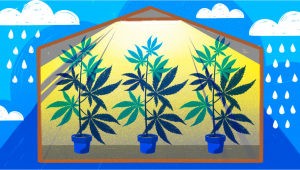
- 1. Step #1. set up your cannabis grow space
- 2. Step #2. select your cannabis grow lights
- 2. a. Fluorescent grow lights
- 2. b. Hid grow lights
- 2. c. Led grow lights
- 3. Step #3. choosing the right genetics
- 4. Step #4. give your cannabis plants fresh air
Congratulations! If you’re reading this, that means you’re ready to grow your own cannabis seeds, that’s a significant step. Once you get all the stages of growth, you’ll hardly find yourself buying cannabis plants ever again. Growing cannabis indoors needs a lot of effort, unlike growing outdoors, which only requires the sun, water, and Mother Nature. This is because when growing indoors you basically are mother nature, when growing in a grow tent, for example, you will have to control and adjust the growing conditions so your plant thrives and you get the best results possible.
The growing conditions include light, temperature, humidity, substrate, and nutrients so it's essential that you are able to control these elements so you don't get an overwhelming harvest or end up killing your plants. To do this properly it's essential you read a bit or gather knowledge online so you don't end up wasting time and money because it can be too much for the first-timers. Growing cannabis indoors can be overwhelming for beginners. However, with our simplified beginner's guide, you’ll quickly understand every step to help you get started as a first-time-grower.
Step #1. Set up Your Cannabis Grow Space
The first initiative in setting up your cannabis growing space is by designing the appropriate room. Remember, this room or space doesn’t have to be classy; it can be in any room, be it a cabinet, closet, or any unused room. All you need to keep in mind is to customize your requirements to fit in the space. Typically, we recommend starting small as a beginner because of the following reasons:
-
Smaller grows are much affordable to set it up
-
It’s simple to observe and control a few cannabis plants
-
Your mistakes will be less costly as a first-time cannabis grower
When creating your room, you should keep in mind other requirements including the lights, fans, ducting and any other equipment required. While cannabis plants grow, they can triple in size during the early stages so, ensure you have enough space in your room. You’ll also need to spend some time considering the location of your growing room or tent. If you live in a region where it’s legal to grow weed, and you don’t care who comes across your crop, then you can happily cultivate weed in any room of your house. However, if laws and other factors require you to take a stealthier approach, then you’ll need to opt for an attic, cellar, or room where people are much less likely to enter.
Next, you need to think about your goal. Most beginner growers simply want to watch a single plant grow from seed to flower in order to get a taste of the experience. To achieve this, you’ll only need a small grow that can easily fit in the corner of your room, or even within a walk-in closet. If, however, you're looking for bigger yields in order to secure a larger stash or to get enough buds to make extracts such as RSO, you’ll need a bigger space.
Ensure that your growing room is thoroughly sanitized. Cleanliness is vital when growing cannabis indoors; therefore, an easy-to-clean surface is essential. Avoid difficult-to-clean surfaces as much as possible such as carpeting, raw wood and drapes. There are three things to keep in mind when deciding where to grow your cannabis:
-
Convenience. Be sure to observe your cannabis plants cautiously. Examining them every day is essential; for newbies, they need to study many times a day till they have everything running smoothly.
-
Humidity and temperature conditions. If your cannabis growing space is very warm, this is not a favorable condition, and you might have a hard time controlling your plants. It’s typically recommended to have a cool, dry space with access to fresh air from outside.
-
Stealthiness. Make sure to choose a spot where the rowdy fans won’t draw any unpleasant attention.
Step #2. Select Your Cannabis Grow Lights
With no sun to rely on, you’ll need to provide light to your cannabis plants. The quality of light in your grow space is the number one factor to put into consideration. If you want quality cannabis yields, it’s essential to choose the best lighting set up. While there are many options to choose from knowing which one is the best can be overwhelming.
Fluorescent grow lights
Fluorescent lights are affordable, handy, and can fit any environment. While those with high-output T5 bulbs are most common out there for small scale growers due to the following reasons:
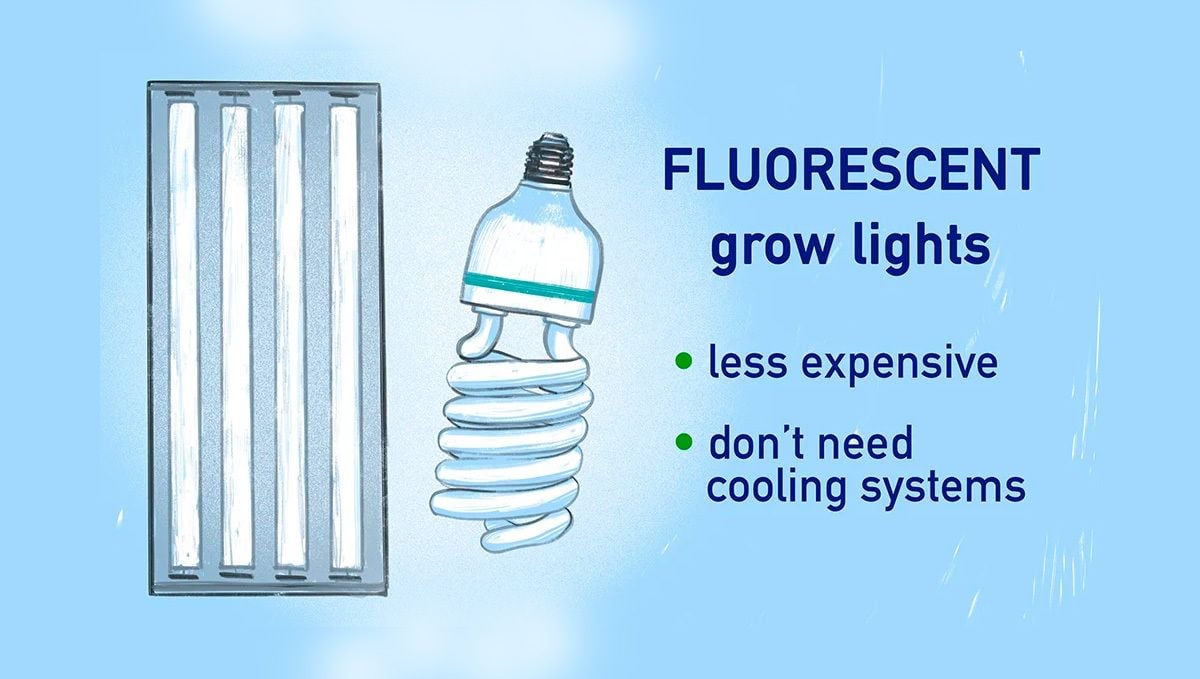
-
They are less expensive to structure since the bulbs, reflector, and ballast are incorporated in one package.
-
They don’t need cooling systems because they do not emit the amount of heat near that of the HID setup.
The major disadvantage is that fluorescent lights are inefficient, creating around 20-30% less light per watt of power consumed.
HID grow lights
High-intensity discharge (HID) are large bulbs that generate an intensive amount of light that is perfect for growing cannabis. HID lights are the most popular, extensively used because of their efficiency, output and value they offer. Their price is higher than those of fluorescent and incandescent fixtures, besides they yield additional light per unit of electricity consumed. There are two kinds of HID lamps typically used for growing:
-
Metal Halide (MH), are generally used during the vegetative phase of growth but can also be used during flowering. Their blue-ish light is ideal for vegging plants. While this will get everything done, many growers switch to another lighting alternative once the buds start to form.
-
High-Pressure Sodium (HPS), serve as counterparts to metal halide lights. They produce a red-orange spectrum and are generally utilized during the flowering phase.
While HID lighting fixtures need a ballast and a reflector for each light, some ballasts are created for use with either MH or HPS lights. If you can’t afford both MH and HPS bulbs, begin with HPS since they provide more light per watt.
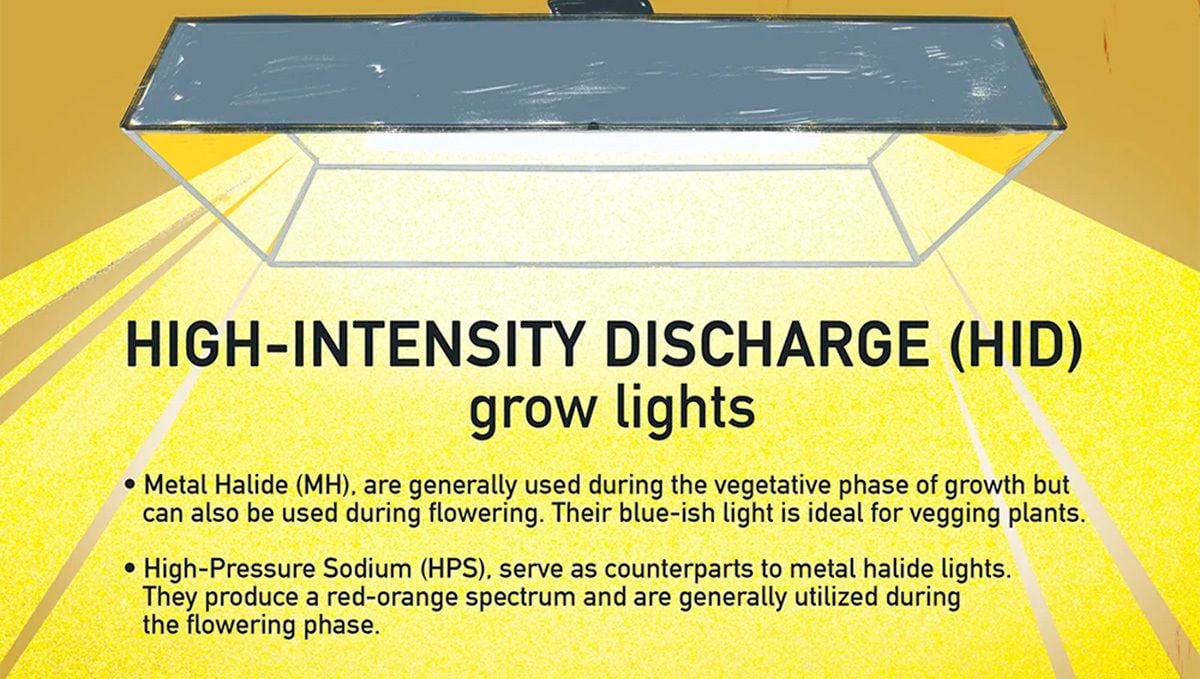
Magnetic ballasts are affordable than digital ballasts, but they generate much heat, they are inefficient and can be harder on your bulbs. Digital ballasts are typically the best alternative but very expensive.
LED grow lights
The light-emitting diode (LED) has been there for some time, but only lately has been modified to be super-efficient lighting fixtures for indoor growing. The major disadvantage of led grow lights is the cost; it can cost ten times more than what HID set up would.
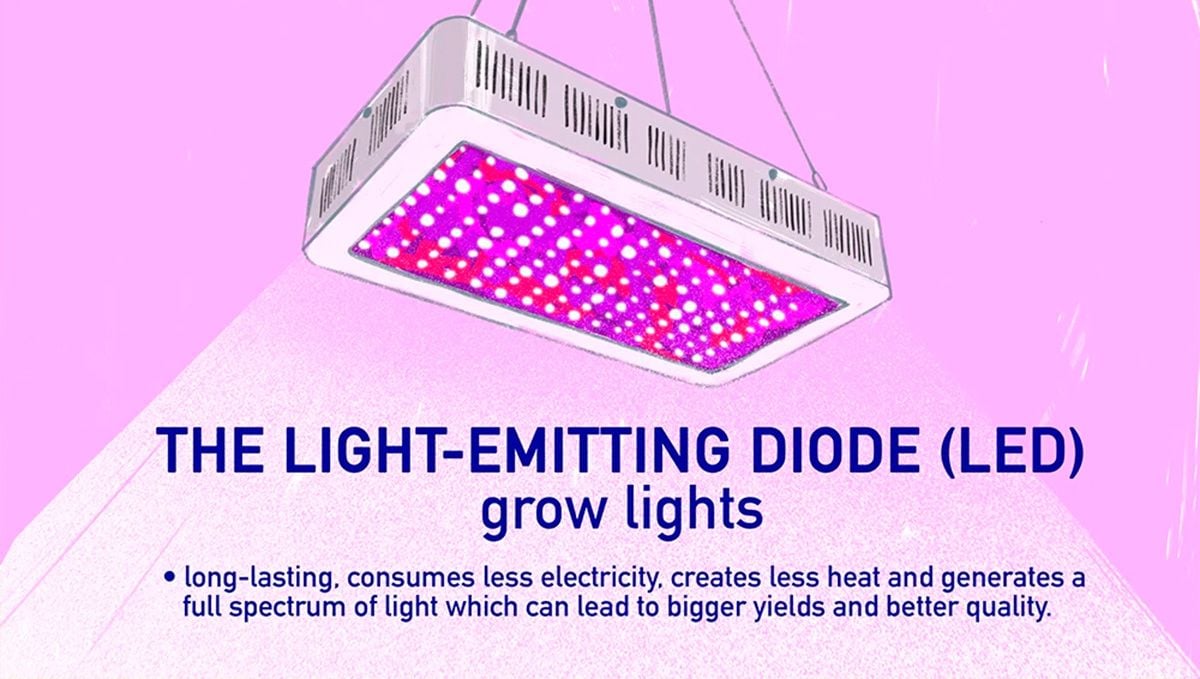
However, expensive led grow lights can be advantageous since it’s long-lasting, consumes less electricity, creates less heat, and generates a full spectrum of light which can lead to bigger yields and better quality. But remember, with the best lighting, you can achieve more.
Step #3. Choosing the Right Genetics
As you may know, there are all kinds of cannabis seeds available online. From regular to feminized to autoflowers. By becoming familiar with different types of genetics before growing, you’ll know exactly what to expect through different stages of the growing cycle.
Therefore, you’ll have the upper hand when it comes to preparation. You’ll select the right size space, pots, lights, and other pieces of gear before you even put seeds in the soil. So it’s super important you understand what you need and what you want before ordering your seeds. So here’s a quick rundown on the different types of seeds available:
Regular Cannabis Seeds
Regular cannabis seeds are seeds that can grow into male or female cannabis plants. The difference between males and females is that female flowers produce the buds we all enjoy while male plants produce male flowers that cannot be consumed but produce pollen which is used by breeders to produce seeds. If you’re growing for the first time, you’ll want to pause any interest you have in breeding while you learn how to successfully grow healthy plants. For now, you should avoid regular seeds, as any males that go to flower in the growing area will fertilize female buds and reduce their quality.
Feminized Cannabis Seeds
Feminized cannabis seeds are seeds bred to grow female, meaning that you won’t have to select males from females as all plants will produce female flowers (aka buds). This is the type of seed that most home growers prefer as it makes your job much much easier. This will vastly reduce the amount of time that you have to monitor your plants during the early stages of the flowering phase. Selecting feminized seeds will eliminate the chances of your buds becoming fertilized, meaning you won’t find stray seeds in your flowers or have to put up with inferior phytochemical profiles.
Autoflower Cannabis Seeds
And finally, autoflowers. Autoflowering strains can also be regular or feminized, but the main characteristic of autoflowers is that, unlike photoperiodic feminized or regular seeds, they do not depend on the light cycle to start flowering because they flower based on age which makes them ideal for those who want to have several different strains in different growth stages in the same tent. Autoflowers are also highly recommended for outdoor growers as they will grow and flower outdoors all year long, independent of the season.
Step #4. Give your cannabis plants fresh air
While carbon dioxide (CO2) is essential for photosynthesis, cannabis plants need fresh air to flourish. This means you’ll require a constant flow of air through your grow room. This can be quickly accomplished by placing an exhaust fan on the top of the room to eliminate a warm atmosphere and a filtered air inlet near the floor Depending on the size of your cannabis grow space and the amount of heat produced by your lighting fixtures, this will determine the size of the exhaust fan you’ll need. HID systems run a ton of heat mostly if they are not installed in air-cooled reflectors.

Make sure that the temperatures remain within a comfortable range for your plants between 69 and 87 degrees F when lights are on and 58 and 69 degrees F when lights are off. Some types of cannabis fancy lower temperatures, while others thrive in high temperatures. It is recommended to structure your lights, turn them on for some time and then decide on a favorable temperature range for your cannabis plants. This will let you select an ideal exhaust fan that suits your needs. However, if the cannabis smell will affect you, you can add a charcoal filter to your exhaust fan.
It’s a great idea to have a steady light breeze in your grow space as it helps strengthen your plant’s stems and create a less friendly surrounding for flying pests and mold. A wall-mounted circulating fan is ideal for this purpose so long as you don’t position directly at your plants since this can cause windburn.
Growing marijuana on your own is fun. As you gain experience and knowledge as a first-time grower, you’ll change your grow room and equipment to better fit your environment, the particular strains you select, and growing techniques.
Check out part 2 of this article for more steps and get a firm cornerstone to get started on the right foot. Growing cannabis is exciting; therefore, spend time with your plants and have fun!








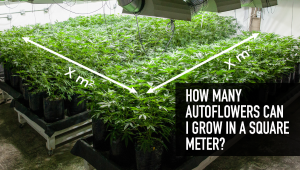
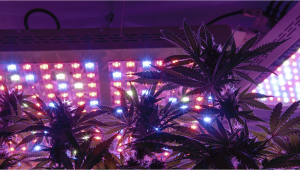
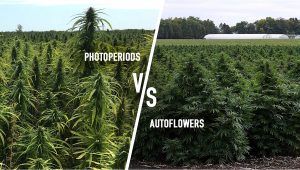
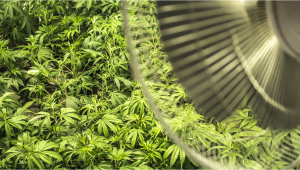


Comments